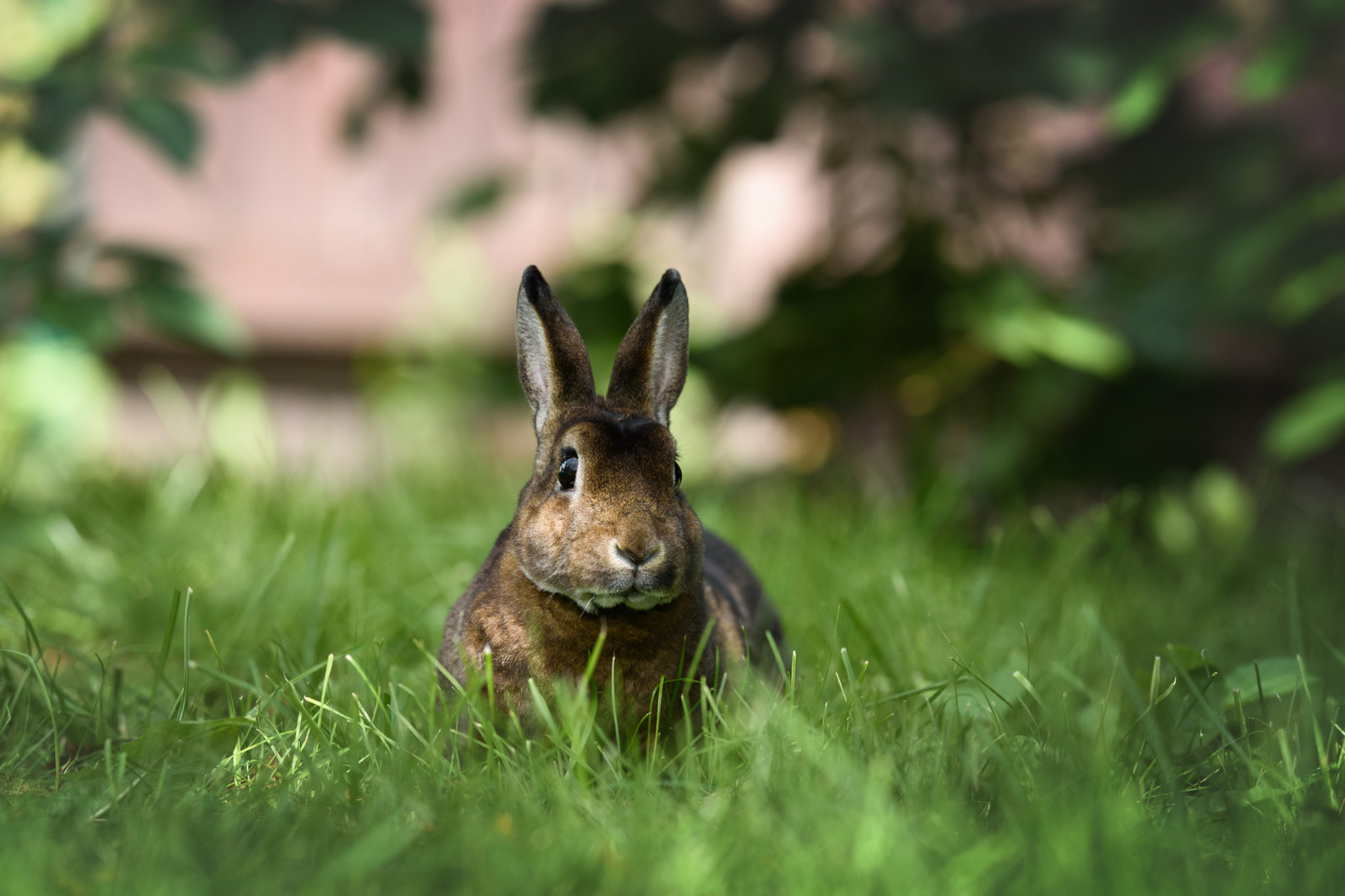
Artgerechte Kaninchenhaltung - Was Kaninchen wirklich brauchen
Kaninchen sind neugierige, soziale und bewegungsfreudige Tiere, doch leider werden sie immer noch viel zu oft falsch gehalten. Ein Käfig im Kinderzimmer, Einzelhaltung, zu wenig Platz oder falsches Futter: All das kann auf Dauer zu Verhaltensstörungen und gesundheitlichen Problemen führen. In diesem Blogbeitrag möchten wir zeigen, wie eine artgerechte Kaninchenhaltung aussieht, mit Herz, Verstand und viel Wissen.
1. Kaninchen sind keine Einzelgänger
Auch wenn es lange Zeit anders propagiert wurde: Kaninchen sind keine Tiere für die Einzelhaltung. Sie sind hochsoziale Lebewesen, die Gesellschaft brauchen, zum Kuscheln, Putzen, Spielen und Kommunizieren.
- Die Grundregel: Mindestens zwei Kaninchen, besser eine kleine Gruppe.
- Die beste Kombination: Ein kastriertes Männchen mit einem oder mehreren Weibchen.
- Wichtig: Auch der Mensch kann niemals ein Kaninchen ersetzen, wir sprechen eine völlig andere „Sprache“.
2. Platz, Platz, Platz! Kein Käfig ist groß genug
Viele handelsübliche Käfige sind viel zu klein und nicht annähernd artgerecht. Kaninchen brauchen viel Auslauf und die Möglichkeit, ihre natürlichen Verhaltensweisen wie Graben, Springen und Haken schlagen auszuleben.
Richtwerte für die Innenhaltung (Minimum):
- 6 m² Grundfläche für 2 Kaninchen
- Dauerhaft, nicht nur „Auslauf“
- Kein Gitterkäfig
- Besser: Eigenbau, Gehege oder ganzer Raum.
Für die Außenhaltung:
- Sicheres Gehege mit Schutz vor Fressfeinden, Regen, Sonne und Zugluft
- Grab- und ausbruchsicherer Boden (Volierengitter!)
- Strukturierter Bereich mit Verstecken, Höhlen, Kletter- und Buddelmöglichkeiten
3. Beschäftigung & Struktur
Kaninchen sind intelligente Tiere und brauchen Abwechslung. Langeweile kann zu Frustration und sogar zu aggressivem Verhalten führen.
Das gehört dazu:
- Tunnel, Korkröhren, Kartons mit Eingängen
- Buddelkästen mit Erde, Sand oder Streu
- frische Zweige zum Knabbern (z.B. Apfelbaum, Haselnuss)
- Spielzeug zum Entdecken (aber bitte ohne Plastik oder Kleinteile)
Tipp: Wechselt regelmäßig die Einrichtung, das sorgt für Neugier und Bewegung!
4. Der richtige Boden & Umgebung
Kaninchen haben empfindliche Pfoten. Harte, glatte Böden (z.B. Fliesen oder Laminat) sind ungeeignet und können zu Gelenkproblemen führen.
Besser sind:
- Teppiche, Kokosmatten, Naturholzböden
- Stallbereiche mit Stroh, Heu oder Holzpellets auslegen
- Ruhige, zugfreie Umgebung ohne Dauerlärm
5. Hygiene & Reinigung
Auch wenn Kaninchen reinlich sind, ihr Lebensraum braucht Pflege.
Regelmäßige Reinigung:
- Täglich: Futterreste entfernen, Wasser wechseln
- Mehrmals wöchentlich: Toiletten reinigen (Kaninchen werden oft stubenrein!)
- 1x wöchentlich: Gehege komplett reinigen Tipp: Keine stark riechenden Reinigungsmittel verwenden. Kaninchen haben feine Nasen!
6. Kaninchen sind kein „Kinderspielzeug“
So niedlich Kaninchen auch sein mögen, sie sind Beobachtungstiere und keine Kuscheltiere. Sie mögen es oft nicht, hochgehoben oder herumgetragen zu werden. Lautes Spielen, schnelle Bewegungen oder Unruhe stressen sie.
Kinder können lernen:
- Kaninchen mit Geduld zu beobachten
- Ruhig mit ihnen umzugehen
- Sie durch Leckereien und Beschäftigung positiv kennenzulernen
7. Ernährung, Gesundheit und Vorsorge
Mit der richtigen Haltung allein ist es nicht getan, gesunde Ernährung und regelmäßige Tierarztbesuche gehören dazu.
8. Fazit:
Artgerechte Haltung ist Verantwortung & Liebe zugleich. Kaninchenhaltung ist keine „einfache“ Tierhaltung. Wer sich dafür entscheidet, übernimmt Verantwortung, wird aber auch reich belohnt: mit Vertrauen, Neugier, sozialen Interaktionen und einzigartigen Verhaltensweisen.












